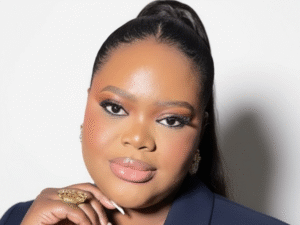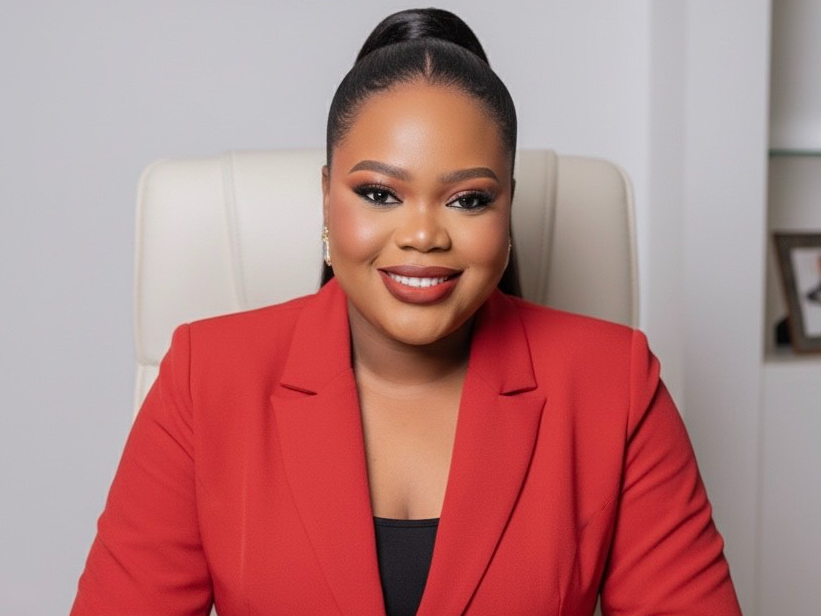Joy Aifuobhokhan remembers the day her family was attacked. It was a hot, restless evening in 2014, the kind that made the air heavy and the city uneasy. Maiduguri, the capital of Borno State once called the “home of peace”, had become a city on edge.
Bombs had become part of the city’s soundscape; fear was palpable. But no one expected that her sleepy neighbourhood, Lagos street, would be next.
Her father, a pastor and teacher of theology, had just completed his notes for Bible class. Her mother, a businesswoman and women’s fellowship leader, had left for Kano to restock fabrics for her small trade.
Aifuobhokhan, then a 17-year-old medical student at Babcock University, was home with her younger siblings when she heard an explosion from a distance. Then came the shouting. She had heard of attacks before, but something about that night felt different.
Within minutes, thick plumes of smoke began to rise from nearby houses. The noise grew: chanting, gunshots, the crackle of burning wood. “So they had gathered and they had come together and said, we heard that there’s a pastor and his wife in this part of town that is always teaching people about the Bible and they’re converting people from our religion to becoming Christians.”
That singular terror set Aifuobhokhan on a path of self-discovery, leading to her current role as a medical doctor, AI researcher, health data scientist, and the Chief Operating Officer at AwaDoc, a digital-health solution. She is also the founder of MyDoctorPadi, a telemedicine platform transforming how people manage chronic illnesses through technology.
Confronting terror
Boko Haram insurgents, infamous for targeting Christians and religious leaders, had found their way into her neighbourhood. By the time the mob reached their house, men were chanting, waving machetes, clubs, and guns.
Her father, who had always believed that faith could calm any storm, gathered his children and whispered, “Pray.”
“He told us to stay inside, that he would talk to them,” Aifuobhokhan said, her voice tightening. “But how do you talk to men who have already decided you should die?”
From a small window, she watched him stand alone in front of the gate, pleading in English and a mix of Hausa while facing the mob. They accused him of converting Muslims to Christianity, of spreading “Western religion,” of corrupting the community.
“They raised a sword to his neck,” she said softly, her eyes distant, as though she could still see it. “And then, he didn’t move. None of them did. For a full minute, nobody moved.”
She calls it a miracle, the inexplicable pause that changed the minds of the angry mob while they left. In the chaos that followed, the mob looted their home, made away with all the money her father had withdrawn to offset their bills for the next academic session, set parts of it on fire, and destroyed everything her parents had worked for.
“And it went on for hours, the longest day of my entire life,” she expressed.
That same evening, they fled to a family friend’s house at Shagari low cost. By dawn, their house was in ruins. Burnt walls, scattered belongings, broken windows. “It was as if the ground swallowed our lives overnight,” she said.
The 2014 Boko Haram armed conflict reportedly claimed 1500 lives, and more lives were claimed throughout the year as the conflict persisted.
Survival came at a cost. Her father’s church was gone. The family business was gone. And with no income, Joy’s education was suddenly uncertain.
“My father couldn’t pay my school fees anymore,” she said. She thought that was the end of her medical career.
“It was pure grace”
When she returned to Babcock University in Ogun State, the reality hit hard. Her fees were due, and she had nothing. On one fateful night, her matron sent her out of the hostel—at 2 a.m.
When her classmates found out, they went from room to room, raising money. Within days, she had enough to offset her bills.
That act of compassion rekindled her drive. She buried herself in her studies, working twice as hard to justify the faith others had shown in her. Her performance soared. Initially a student of Anatomy, her GPA was so high 4.95/5 that the university offered her an automatic transfer to Medicine upon application.
How to source for her subsequent fees was the next big question. At the time, she was serving as Assistant Director in the Babcock University Association of Medical Students, one of many leadership positions she had held over the years. She had been a senator and a floor director and eventually rose to become Vice President.
Despite the chaos, she chose to carry on as though life were normal. She returned to classes, attended leadership meetings and faced the enormous pressure of medical school with quiet resilience.
“I’m not someone who wears my pain on my sleeve,” she remarked. “I’ve learnt to move, even when everything around me is falling apart.”
After paying tuition for two semesters, her family’s savings ran out. She had already completed her 300 level and was partway through 400 level when she realized she could no longer afford the rest of her medical education. It was a devastating realisation.
Still, she refused to give up. She turned to her university for help, and that was when grace found her again. She met Dr. Lare, the Director of Student Services at Babcock University, who was familiar with Aifuobhokhan’s story, her leadership record, her brilliance, and her unmatched eloquence.
Usually, scholarships and tuition waivers were only given to Seventh-day Adventist students, since Babcock is a faith-based institution and she wasn’t one. But Dr Lare wrote a heartfelt appeal to the Vice Chancellor and the church Board, describing Aifuobhokhan as a “bright and shining star whose light must not go out.”
The university granted her a partial scholarship—the first of its kind for a non-Adventist student. “It was favour, pure grace,” she said.
But even after that relief, there were still days when money ran out. Days when she had no food. Days when she wondered how she would pay the remaining balance before the school’s one-week deadline. Yet every single time, help came from places she never expected.
Churches she had never attended, like Daystar Christian Centre, heard about her story. Pastor Sam Adeyemi, the founder, offered to pay part of her school fees, despite having no prior connection to the church. Other individuals, NGOs, and faith-based groups contributed in bits.

“Every time I showed up hopeless, someone just came through,” Joy says. “Someone would pay for feeding, or accommodation, or tuition. It was like God kept sending people from nowhere.”
Then, tragedy struck again. Just weeks before her final exams, her father died from a sudden hypertensive emergency. He had lived for years with hypertension and diabetes.
Still Aifuobhokhan soldiered on, eventually graduating with a distinction in Bachelor of Medicine and Surgery in 2020. But her vision extended beyond clinical practice.
“For me, it wasn’t enough to just treat one patient at a time,” she said. “I wanted to use data to improve healthcare for millions.”
Merging medicine with technology
That conviction led her into digital health and artificial intelligence. She enrolled in fellowships and certifications at Harvard, Stanford, and the University of Washington, cultivating mastery in health data science.
Her most remarkable project was a predictive model that could forecast thyroid cancer recurrence, which eventually could be adapted for other cancers.
Her father’s demise also deepened her awareness of how poorly chronic diseases are managed in Nigeria. “People start treatment but often get tired of the routine,” she explained. “They stop showing up for checkups, skip medications and before long, it becomes fatal.”
In response, Aifuobhokhan created MyDoctorPadi, a telemedicine platform designed to help patients living with hypertension and diabetes manage their health more consistently.
The app connects users with doctors, tracks their vitals, and reminds them to take medications or schedule appointments, thereby bridging the gap between home and hospital care.
In 2021, the innovation won the Best Health-Tech Innovation Award at the African Impact Summit.
Her growing expertise attracted attention from both her friends and colleagues, including popular digital health advocate Chinonso Egemba (Aproko doctor) and Jesse Benedict, who wanted her to co-build AwaDoc—an intelligent healthcare platform that could serve as an all-in-one solution for Africans seeking medical information, telemedicine consultations and health data management.
“I joined AwaDoc because I believed in the vision,” Aifuobhokhan said. “Nonso already had millions of followers from his medical education content. People trusted him, but he couldn’t attend to everyone personally. AwaDoc was created to meet that demand, to make quality healthcare accessible at scale.”
Leading AwaDoc
Today, as Chief Operating Officer, she oversees operations connecting the platform’s vision to execution. Under her leadership, AwaDoc now serves over 100,000 users across 27 African states.
Aifuobhokhan sees these successes as redemption. “Every time I help someone access healthcare, I remember those days when we couldn’t even afford food,” she said. “I remember being homeless, being hopeless and I know this is God’s way of rewriting my story.”
Currently, MyDoctorPadi is on hold as she focuses on scaling AwaDoc AI and deepening her expertise
For her, it’s never been about ownership or ego; if she finds a project she believes can truly change lives, she commits to building it wholeheartedly. MyDoctorPadi, she added, could even become a subsidiary of AwaDoc someday.
Aifuobhokhan holds multiple certifications and has four published research papers and four others in progress.
Amid her demanding schedule, she finds balance in learning new languages, playing tennis, or practising golf. But nothing steadies her like her family and faith.
“My mom is my biggest cheerleader,” she said, smiling. “If I told her I want to be President of America, she’d say, ‘Let’s go and start the election.’ That kind of faith keeps me going.”
Building a life of purpose “comes with a lot of isolation,” she admitted. “People think I’m ignoring them, but sometimes I just can’t keep up.”
Behind her eloquence, though, lies a surprising layer of social anxiety—a craving for solitude and a retreat into her work.
“It’s the price I’ve had to pay for the life I’m building,” she noted.
Summary not available at this time.






